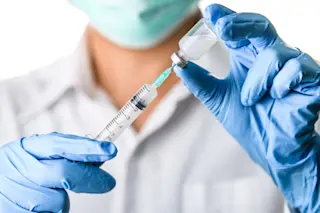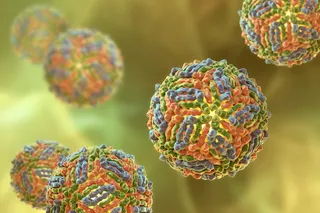If scientists develop a SARS-CoV-2 vaccine within a year and a half, it would be a world record. The title is currently held by Maurice Hilleman, who turned his daughter’s throat swab into a licensed mumps prophylaxis within four years. Otherwise, preventive measures typically take a long time to develop: Measles, for example, was a nationally recognized disease in the U.S. for over 50 years before a vaccine was ready. In 1984, officials declared that an HIV vaccine would be ready for testing in two years. More than 35 years later, however, there is no HIV vaccine.
Why is it that some vaccines are harder to develop than others? Often, the answer has to do with the virus itself, and how it behaves in our bodies. Sometimes, a vaccine is not commercially viable. And in other instances, the perceived threat of an illness can prolong (or shorten) how long it ...














